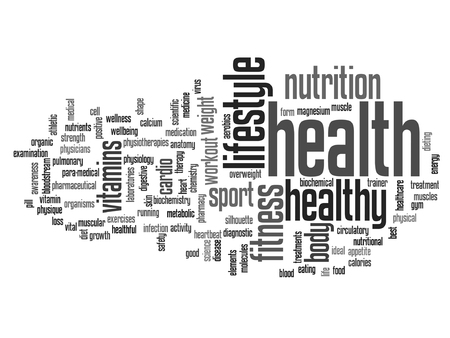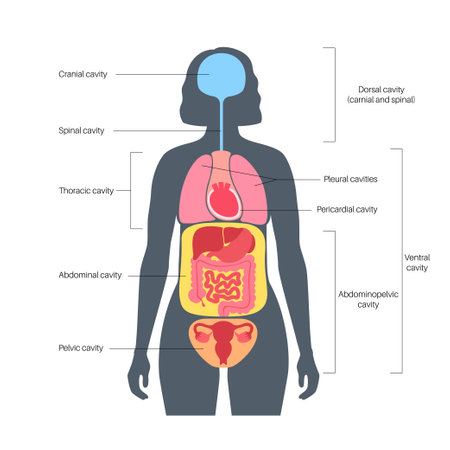Introduction to Fall Risks in Older Britons
Falls among older adults represent a significant health concern across the United Kingdom, affecting not only individual wellbeing but also placing considerable pressure on families and the NHS. Statistics reveal that one in three people over the age of 65 will experience at least one fall each year, with rates increasing as people get older. These incidents are not merely a matter of physical injury; they can trigger a loss of confidence, reduced independence, and even long-term care needs. In fact, falls are the leading cause of injury-related hospital admissions among British seniors, often resulting in fractures, head injuries, and other complications that can drastically diminish quality of life. Recognising these risks is crucial for anyone involved in elderly care or concerned about their own ageing journey. While multiple factors contribute to falls—including environmental hazards, medications, and chronic conditions—nutrition and hydration play an often-overlooked role in both prevention and recovery. This article will explore how what we eat and drink directly affects our balance, strength, and overall resilience, setting the stage for a deeper dive into practical strategies tailored to the unique needs of older Britons.
2. Understanding Nutrition and Hydration in Later Life
As we age, our bodies undergo significant changes that affect how we process nutrients and maintain hydration. For older adults in Britain, these changes are further shaped by traditional British diets and local habits. Understanding the unique nutritional and hydration needs of British seniors is crucial in reducing the risk of falls and promoting overall wellbeing.
Nutritional Needs of Older Adults in Britain
The metabolism slows with age, making it vital for seniors to consume nutrient-dense foods rather than calorie-rich, nutrient-poor options. Common British dietary staples such as roast dinners, fish and chips, and afternoon tea reflect longstanding traditions but may not always meet the evolving requirements of later life. Seniors require more calcium for bone health, adequate protein to prevent muscle loss, and sufficient fibre for digestion. A balanced diet tailored for British seniors might look like this:
| Nutrient | Recommended Sources (UK Context) | Role in Fall Prevention |
|---|---|---|
| Protein | Fish pie, lean roast meats, eggs, pulses | Supports muscle strength and repair |
| Calcium & Vitamin D | Dairy products, fortified cereals, oily fish | Maintains bone density |
| Fibre | Porridge oats, wholemeal bread, root vegetables | Aids digestion and overall health |
| B Vitamins & Folate | Leafy greens, Marmite on toast, legumes | Supports nerve function |
Hydration Habits Among British Seniors
Hydration often gets overlooked, especially in cooler climates like the UK where thirst cues may be diminished. Traditional habits—such as frequent tea consumption—do contribute to daily fluid intake, but its important to remember that caffeinated drinks can have a mild diuretic effect. Encouraging regular sips of water throughout the day is essential. Soups and stews, which are popular in Britain during colder months, also play a positive role in maintaining hydration levels.
The Challenge of Changing Habits
Seniors who grew up during or just after wartime rationing may be accustomed to smaller portions and less variety. Encouraging them to adapt their eating patterns to include more fresh fruit and vegetables, reduce salt intake from processed foods, and stay hydrated requires sensitivity to personal preferences and cultural habits.
Key Takeaway for British Seniors
An awareness of both traditional British dietary patterns and the changing nutritional landscape is key for carers and families supporting older adults. By understanding these unique needs—and gently adapting meals and hydration practices—its possible to help reduce fall risks while respecting the rich food culture that makes Britain unique.

3. How Poor Nutrition Contributes to Falls
In the UK, where our changing seasons and sometimes limited sunlight can affect diet and wellbeing, poor nutrition is a significant but often underestimated risk factor for falls among older adults. Many British seniors face challenges in maintaining balanced diets due to factors such as reduced appetite, dental issues, economic constraints, or simply living alone with less motivation to prepare nourishing meals. These circumstances can lead to undernutrition—a state where the body doesn’t get enough calories, protein, or essential vitamins and minerals required for health.
One major concern is vitamin deficiencies, particularly vitamin D and calcium. Due to limited sun exposure in the UK (especially during long winters), vitamin D deficiency is surprisingly common. This vitamin is crucial for bone health and muscle function; without adequate levels, bones become weaker and muscles lose strength, both of which substantially increase fall risk. Likewise, insufficient dietary intake of calcium can exacerbate bone fragility, making falls not only more likely but also more dangerous when they do occur.
Undernutrition also leads to general muscle weakness (known medically as sarcopenia), which diminishes balance and mobility. British seniors who struggle to consume enough protein—often found in meat, dairy, beans, and eggs—may notice declining physical strength over time. This gradual loss of muscle mass is directly linked to instability on one’s feet and slower reaction times if a stumble occurs.
It’s important to recognise that these nutritional gaps don’t just develop overnight. They are often the result of small but persistent habits or barriers: skipping meals, relying on convenience foods low in nutrients, or being unaware of the importance of specific vitamins and minerals in later life. The cumulative effect can be a subtle decline in physical resilience—until a fall makes the problem impossible to ignore.
From my own experience working with older adults across Britain, I’ve seen how tailored nutritional advice and community meal programmes can help address these risks. Encouraging regular check-ups with GPs or dietitians and fostering social opportunities around food—such as lunch clubs or family dinners—can make a real difference. Ultimately, understanding and addressing poor nutrition is a vital part of any fall prevention strategy for British seniors.
4. The Effects of Dehydration on Balance and Cognition
Dehydration is a silent but serious concern among British seniors, especially during warmer months or in care settings where fluid intake may be unintentionally neglected. Insufficient hydration doesn’t simply result in thirst; it has a direct impact on both balance and cognitive function—two critical factors in fall prevention.
When the body lacks adequate fluids, blood pressure can drop, leading to dizziness or light-headedness, particularly upon standing—a common trigger for falls among older adults. Moreover, dehydration impairs concentration and memory, contributing to confusion or delayed reactions. In my own experience volunteering at a local Age UK centre, I’ve observed several elderly individuals become unusually forgetful or unsteady during heatwaves, only to improve significantly once their fluid intake was addressed.
To illustrate these risks clearly, here’s a breakdown of how dehydration affects the body in ways that increase fall risk:
| Effect of Dehydration | Real-World Impact (UK Seniors) |
|---|---|
| Dizziness & Light-headedness | Increased falls when rising from bed/chair, especially after tea breaks or during hot weather |
| Cognitive Impairment | Forgetfulness about safety routines (e.g., using walking aids), confusion about surroundings |
| Muscle Weakness & Fatigue | Reduced ability to walk steadily on uneven pavements or stairs common in British towns |
| Delayed Reaction Time | Poor response to hazards like wet floors after rain or icy conditions during winter |
In the UK, many seniors report preferring tea over water, but relying solely on caffeinated beverages can sometimes exacerbate fluid loss. Encouraging regular sips of water—particularly before leaving the house or engaging in activities—is an effective strategy I’ve seen adopted by several community groups in Manchester and Bristol with noticeable improvements. Ultimately, maintaining hydration is not just about comfort; it’s a practical necessity for preserving independence and reducing preventable falls.
5. Identifying Barriers to Good Nutrition and Hydration in the UK
Maintaining optimal nutrition and hydration is not always straightforward for British seniors. Several barriers exist that can directly or indirectly increase the risk of falls among older adults. One of the most significant challenges is social isolation. Many elderly individuals live alone, particularly in urban areas or remote rural communities across the UK. Loneliness can lead to reduced motivation to prepare balanced meals, resulting in inadequate nutrient intake or irregular eating patterns. Even making a cup of tea or remembering to drink water regularly may slip through the cracks when there is little daily interaction.
Economic factors also play a crucial role. With rising living costs and limited pensions, some seniors may find it difficult to afford fresh produce, lean proteins, or even enough groceries to last the week. This financial pressure often leads to compromises—opting for cheaper, processed foods that are low in essential nutrients, or cutting back on fluids like milk and juice.
Another obstacle involves access to health services. In some parts of Britain, particularly in rural regions or within underfunded NHS Trusts, access to regular nutritional advice and support can be limited. Long waiting times for GP appointments, lack of home visits from dietitians, and minimal community outreach programmes all contribute to these gaps. For those with mobility issues or chronic conditions, travelling to local shops or clinics becomes an additional hurdle.
The intersection of these challenges—social, economic, and systemic—can create a perfect storm where malnutrition and dehydration quietly take hold. Recognising these barriers is the first step towards building practical solutions that ensure British seniors receive the support they need to stay nourished, hydrated, and safe from falls.
6. Practical Strategies and Community Resources
Actionable Nutrition Tips for British Seniors
Maintaining good nutrition doesnt require drastic changes; often, small adjustments make a big difference. For British seniors, consider incorporating traditional foods with a healthy twist. Swap white bread for wholegrain options in your daily toast, and choose porridge oats for breakfast, which are not only filling but also support steady energy levels throughout the day. Fish is a staple in many UK diets – aim to enjoy oily fish like salmon or mackerel twice a week to boost vitamin D and omega-3 intake, both important for muscle strength and balance.
Hydration: Simple Steps for Everyday Life
It’s easy to overlook hydration, especially with Britain’s cooler climate where thirst cues may be less obvious. Encourage regular drinking habits by having a glass of water with each meal and keeping a favourite mug or water bottle nearby. Don’t forget that tea counts towards fluid intake – just be mindful of how much caffeine you consume. Herbal teas or diluted fruit juices can offer variety and encourage more consistent hydration.
Engaging Family and Caregivers in Fall Prevention
Families and caregivers play a crucial role in supporting seniors’ health. Encourage shared mealtimes when possible, as eating together can improve appetite and ensure balanced meals. If shopping is challenging, online grocery delivery services provided by local supermarkets (such as Tesco or Sainsburys) can help keep the kitchen stocked with nutritious essentials. Involve seniors in meal planning and preparation – this not only boosts independence but also ensures food preferences are respected.
Making Use of NHS and Local Council Support
The NHS offers valuable resources for fall prevention, including free annual health checks for those over 75 and nutrition guidance through GPs or community dietitians. Many local councils provide “meals on wheels” services, ensuring access to hot, balanced meals. Day centres often host lunch clubs where seniors can enjoy nutritious food in a social setting, reducing isolation while promoting better eating habits.
Community-Based Activities to Promote Wellbeing
Look out for local walking groups or gentle exercise classes run by community centres or Age UK branches – these encourage mobility while fostering connections. Gardening clubs are another great way to stay active and engaged with others, which has knock-on benefits for both physical health and mental wellbeing.
A Collaborative Approach Yields Best Results
Combining practical nutrition and hydration strategies with community resources creates a supportive environment where British seniors can thrive. By making use of available services, engaging family members, and adapting favourite foods to meet nutritional needs, we can all play a part in reducing fall risks and enhancing quality of life for our older generation.
7. Conclusion: Empowering Seniors to Stay Safe and Well Nourished
To sum up, nutrition and hydration are far more than buzzwords in the world of senior health—they are vital pillars that support independence, mobility, and safety for older adults across the UK. As we’ve explored, a balanced diet rich in essential nutrients and regular, mindful hydration can dramatically reduce the risk of falls among British seniors. This isn’t just about ticking boxes on a care checklist; it’s about fostering dignity, confidence, and quality of life.
The responsibility to address fall risks through better nutrition and hydration does not rest solely on the shoulders of seniors themselves. Communities play a crucial role—whether it’s local councils organising healthy eating workshops, neighbours checking in on each other, or supermarkets making it easier to access nutritious foods. Healthcare professionals are equally pivotal: GPs, nurses, carers, and dietitians must champion personalised nutrition advice as part of routine care for older patients. And let’s not forget family members—your encouragement at mealtimes or support with shopping can make all the difference.
For seniors reading this, remember: you have the power to take small steps each day towards better health. Start by choosing wholesome British produce when possible, drinking water regularly (even when you’re not thirsty), and seeking advice if you notice changes in appetite or weight. The path to staying upright, strong, and independent is built on these everyday choices.
This is a call to action for everyone: let’s join forces to create an environment where every older adult in Britain feels supported to eat well, stay hydrated, and move confidently through later life. By prioritising nutrition and hydration together as a community, we can prevent falls before they happen—and help our elders enjoy their golden years safely and vibrantly.


